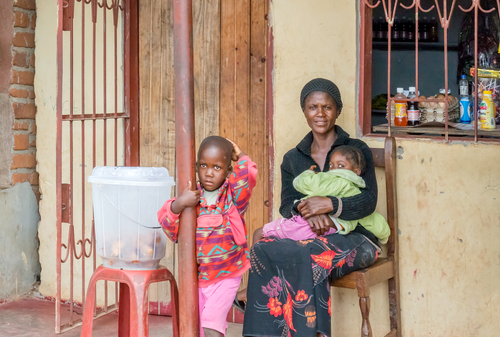Umwini: Asset Development Program for Young Women Living with HIV in Zambia

Overview
- Objective: The primary research objective was to examine the feasibility of an asset-based intervention for young people living with HIV (PLHIV) in Zambia.
- Initiative/Approach: The Umwini project was a pre- and post-test quasi-experimental research project.The 10-week program combines development of life and employability skills, psychosocial functioning, and financial capability. Central to Umwini is the accumulation of life skills (or intangible assets) and their enhancement and retention through access to microeconomic strengthening opportunities (or tangible assets) in the form of savings.
- Findings: Outcome and process evaluations are ongoing to evaluate feasibility and acceptability of implementing an asset-based program for youth living with HIV. Data related to recruitment, eligibility criteria, and relevance and demand for the intervention are being evaluated to determine feasibility of recruitment procedures and relevance of Umwini and its components.
Details
Partners
Research Partners
- Lundazi District Health Office
Implementation Partners
- Rising Fountains Development Program
- Lundazi District Hospital
- Chipata General Hospital
- Zambia National Commercial Bank (Zanaco)
Funding Partners
Contributors
Back to InitiativesCoupled with gender inequity, poverty and income inequality remain key drivers of the HIV epidemic in Zambia. Women and young girls are at higher risk of living in poverty than men and have more limited livelihood and employment opportunities. Consequently, this lack of financial security drives women to partake in activities that increase their risk of HIV acquisition and/or transmission such as: age-disparate relationships, transactional sex, and having multiple, concurrent partners.
To address lack of training and limited income-generating opportunities for young women, GSDI’s efforts for this project aim to test an employability and asset development program for young women living with HIV. The intervention leverages existing partnerships among organizations that work with youth and people living with HIV in Zambia, and will evaluate its impact on economic, financial, health and HIV treatment outcomes.
The project comprises of technical and life skills training, stipend, mentoring and workplace internship, and access to a savings product. The primary outcome to be examined is HIV treatment — including retention, adherence, and viral suppression, — as well as employment, financial, and psychosocial outcomes. If evidence supports effectiveness, GSDI aims to adapt and scale up the approach to similar settings in sub-Saharan Africa and other resource-limited regions.
Location
Lundazi, Zambia
Chipata, Zambia
